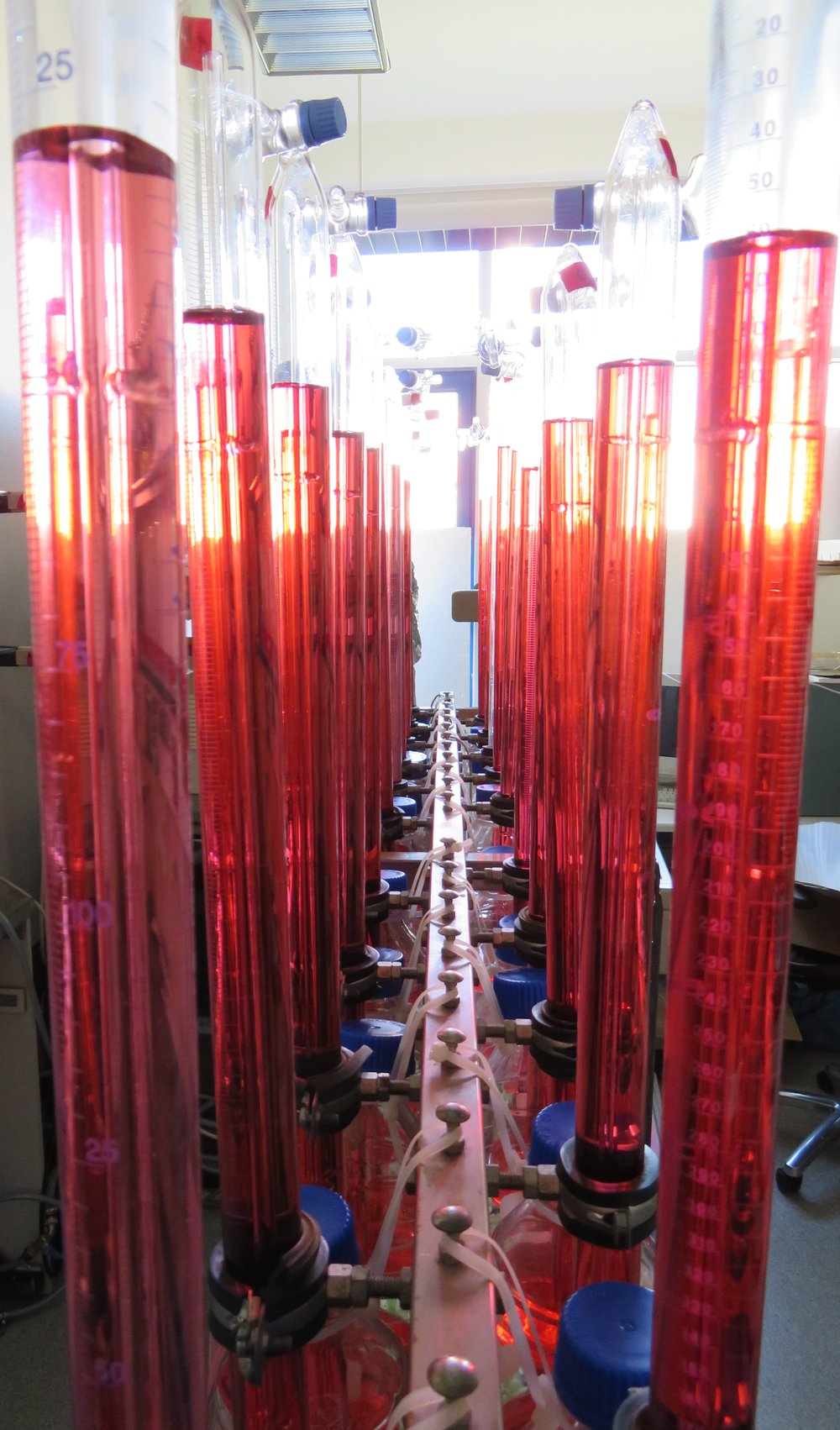Optimization of in-situ biomethanation under digestion conditions.
The composition of externally supplied gas components plays a crucial role in in-situ biomethanation, as it affects the process of methane production. Different gas components can significantly change the efficiency and end products of this biological process.
As part of the cooperation project between Augsburg University of Applied Sciences, Blue Energy Group AG and bifa Umweltinstitut, a concept is being developed to integrate sewage sludge gasification with biological in situ methanation during the anaerobic digestion process and its subsequent use in a flexibilized micro gas turbine process. In laboratory experiments effects of gases are investigated by means of eudiometers. Eudiometers are sealed glass tubes with a scale that are routinely used to evaluate sludge digestion or fermentability of solid and liquid substrates. Methane production was compared in approaches of wastewater treatment plant sludge, hydrogen H2, and carbon monoxide CO. Conversion of H2, CO, and CO2 to CH4 resulted in a volume reduction of the gases with the same energy content. The largest reduction in gas volume was found in the approaches with H2 addition. H2-CO mixing also had no negative effect on raw sludge utilization. The next steps include switching from pure gases to real syngas from combustors. For this purpose, a "laboratory faulturm" will be set up to test the effects of the continuous use of syngas. The goal is to analyze the in-situ biomethanation rates as well as the microbial communities under digestion conditions.
